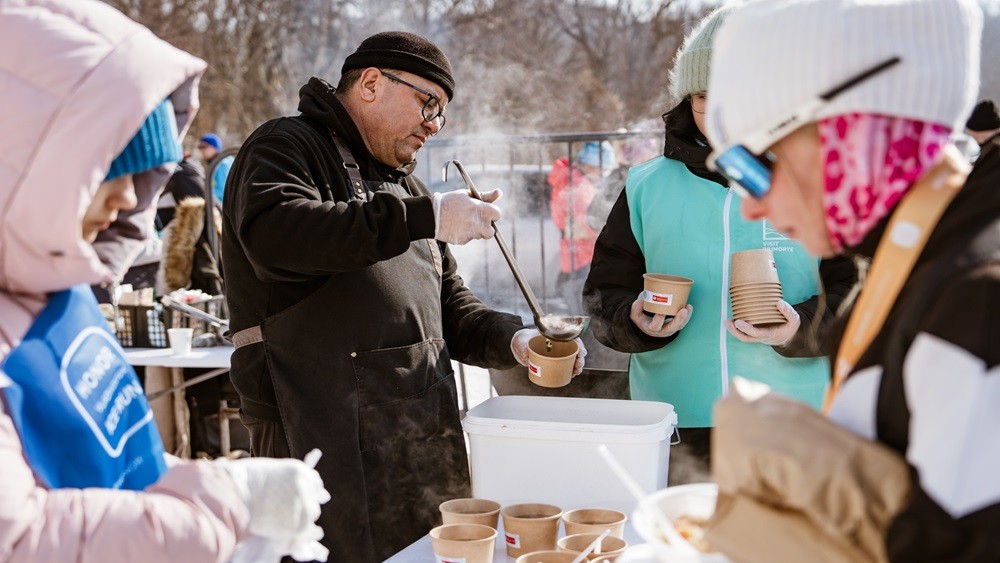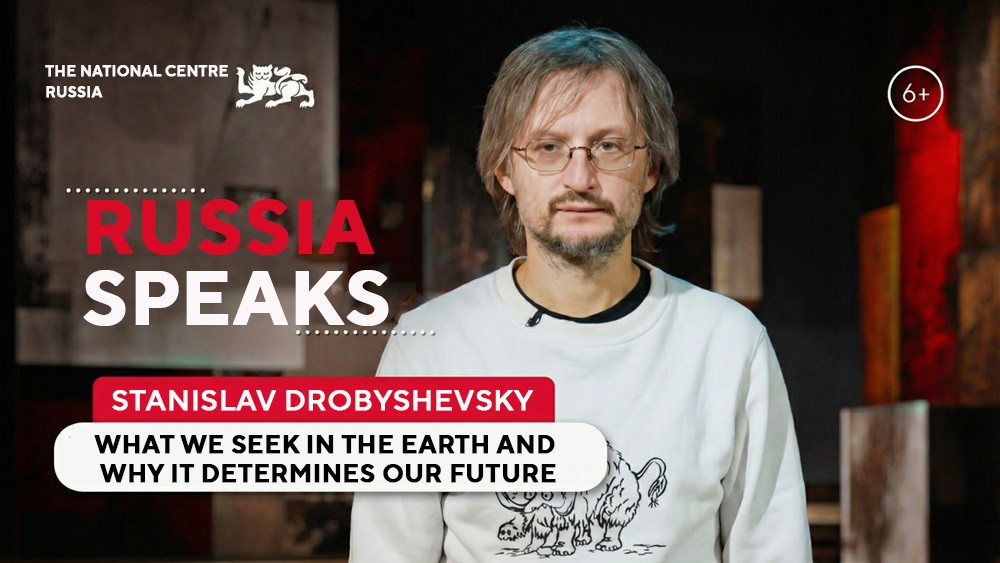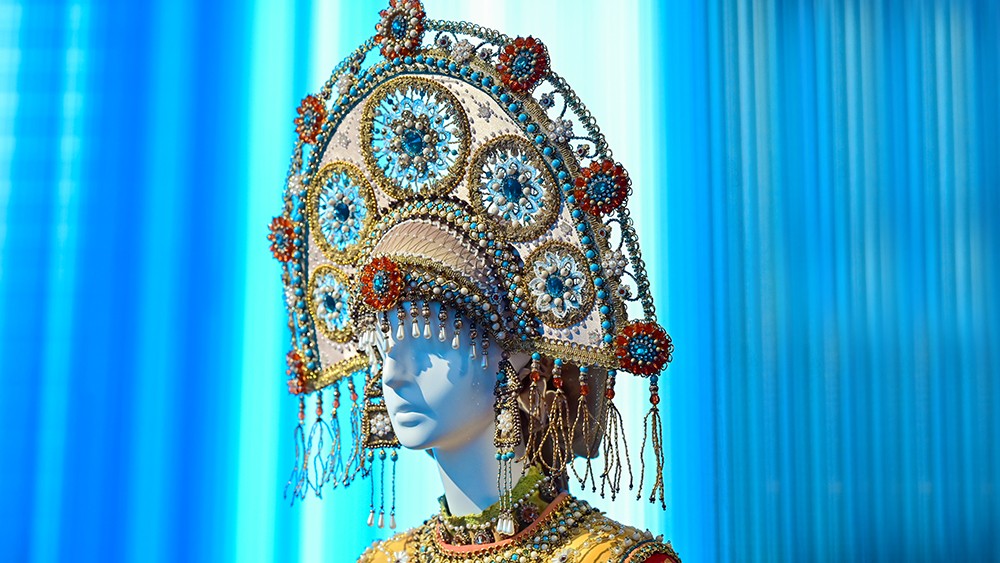The application process for the "Native Toy" competition has been concluded at the National Centre
On March 4, the second meeting of the Organizing Committee of the All-Russian Competition "Native Toy" took place at the National Centre RUSSIA. The competition is organized by the Russian society Znanie in partnership with the Movement of the First. The committee members approved 177 toy and game concepts that have advanced to the next stage of the competition — the creation of models. In total, approximately 28.2 thousand applications from all 89 regions of Russia were submitted for the competition, which launched in November 2024.
The second
meeting of the Organizing Committee was opened by Yelena Yampolskaya, Aide to
the President of the Russian Federation and Co-Chair of the Organizing
Committee of the competition. She shared details about the application process
and highlighted the significance of the event, noting that the All-Russian
Competition "Native Toy" was launched on the initiative of the
President of the Russian Federation, Vladimir Putin.
"The
first stage of the competition seemed very difficult for us, as the success of
the competition depended on how much our citizens would want to create toys
that reflect Russian traditional values. We could only provide information.
However, our hopes were justified, as all regions of the Russian Federation
participated. Applications were sent by enthusiasts and professionals, small
and large companies, children and adults. In my opinion, the ideas are
fascinating, and with their implementation, the range of products available on
store shelves will expand significantly. But I emphasize, our task will be
accomplished when the development of the native toy is centralized, its
production is put on stream, and the toys themselves are in the hands of
children," emphasized Yelena Yampolskaya.
The meeting
was continued by the Chairman of the Board of the All-Russian Public-State
Movement of Children and Youth "Movement of the First," Hero of
Russia, and Co-Chair of the Organizing Committee, Artur Orlov, who noted that
the large number of applications from all regions of Russia shows how well
people understand the role of spiritual and moral values and generational
continuity, embodied in toys, in the educational process.
The
Minister of Education of the Russian Federation, Sergei Kravtsov, pointed out
that when developing the new Education Development Strategy, it is crucial to
consider the preschool period, as it is during this time that children form
their primary moral and ethical values. Toys that align with traditional values
and promote child development should not only be present in families but also
in kindergartens.
"We
need toys that raise and develop children according to our traditions. It is
necessary to establish a list of games and toys that perform an educational
role and should be present in preschool institutions. I would also like to
emphasize that today there is a procedure for voluntary certification of toys
and games. This mechanism is not sufficiently effective. I propose legislating
the procedure for the expertise of toys. We are ready to consider this
function, as we have the appropriate scientific institutions. This measure will
allow us to support domestic producers," added Sergei Kravtsov.
Maxim
Dreval, the Director General of the Russian society Znanie, summarized the
results of the application collection and shared key figures of the
competition. According to him, 2,100 applications were received from companies
and entrepreneurs with experience in manufacturing various toys, and 26,100
applications came from individuals, including 3,300 from children.
The leaders
in the number of applications approved for expert evaluation were Nizhny
Novgorod region (623), Moscow (466), Moscow region (380), Penza region (360),
Kirov region (359), St. Petersburg (342), Samara region (319), Krasnodar region
(258), Donetsk People's Republic (233), and Saratov region (217). The
competition for a spot in the next stage amounted to 159 applications per
place.
"We
saw a large number of interesting and vibrant ideas dedicated to the heroes of
the Special Military Operation (SMO), historical figures of Russia, traditions
and crafts of different peoples, and the achievements of our country. It is
extremely important that the projects were submitted not only by companies and
entrepreneurs with experience in the production of various toys and games, but
also by children — there were about 3,000 such applications. The games and toys
they dream of often focused not on fantastic heroes, but on serious topics
related to Russia's cultural and historical heritage," noted Maxim Dreval.
The most
popular category was "Story-Based Toys," with 4,104 applications
passing the preliminary selection and expert evaluation. The competition
projects, ranging from dolls to New Year tree decorations, were dedicated to
characters from Russian folk tales, various professions, and heroes who live
among us — participants in the SMO, healthcare workers, volunteers, astronauts,
and others. The toy collections were related to the theme of natural resources
and the beauty of Russia's regions, traditions, and cultures of the peoples of
the Russian Federation, as well as the history of the country. The second
most popular category was the one dedicated to board games, with 3,015
applications passing the preliminary selection and evaluation. The games in
this category aimed to immerse participants in the atmosphere of the formation
and development of Russian statehood, spark interest in the languages and
history of Russia’s peoples, as well as the country’s achievements in science
and technology, and its cultural heritage. The "Design and Technical Toys"
category received 589 diverse applications, the "Multimedia Projects"
category received 332, and the "Technical and Technological Toys"
category received 195.
Maria
Zakharova, Director of the Information and Press Department and official
spokesperson for the Russian Ministry of Foreign Affairs, suggested expanding
the geography of the competition through diasporas and various associations of
compatriots living abroad. According to her, many of them are true custodians
of traditions, as they raise children with toys and games they brought with
them to preserve their national identity. The diplomat also proposed initiating
the creation of an Association of Toy Museums and displaying native toys at
major international platforms, including the St. Petersburg International
Economic Forum (SPIEF) and the Eastern Economic Forum (EEF).
Ivan
Kulikov, Deputy Minister of Industry and Trade of the Russian Federation, spoke
about the planned measures of support for future winners of the competition
from the Ministry of Industry and Trade. These measures include subsidies,
preferential loans at minimal interest rates, assistance with licensing, and
obtaining the status of a Russian manufacturer, which allows participation in
state and municipal procurement. Additionally, regional funds have been
recommended to create special programs for concessional lending to domestic
manufacturers of children's goods.
All
applications that advanced to the next stage were evaluated by an expert jury
consisting of 322 specialists from various fields, including psychologists,
educators, technologists, marketers, representatives of partner organizations,
manufacturers and distributors of children's games and toys, and public
organizations.
Now,
participants in each of the five competition categories must develop models of
their own games and toys, a process that will continue until May 16. A group of
65 project mentors will assist contestants in refining their concepts and
provide consultations on development, production, material selection, and
design. The outcome of this stage will be detailed blueprints and models of the
games and toys.
Following
expert evaluation, up to 75 projects will advance to the next round. Their
creators will have the opportunity to produce a working prototype in a partner
company's workshop. The competition will conclude with a large-scale children's
games festival in September 2025, where experts, parents, and children will
test the games and toys. Based on the results, up to five winners will be
selected in each category, and their projects will be mass-produced and
distributed through retail networks. The meeting’s results and the list of
concepts that advanced to the next stage will be available on the competition's
website.
Many
organizations have officially supported the nationwide competition "Native
Toy" ("Rodnaya Igrushka"). Among its expert partners are the
Association of Children's Goods Industry Enterprises, the animation company
YARKO, Soyuzmultfilm, and various Russian universities. The competition's
official partners include the Ozon marketplace and the Detsky Mir Group of
Companies. VK has become the strategic partner of "Native Toy"
competition, while the Solntse TV channel serves as its media partner. Additionally,
the competition is supported by technological partners, including manufacturers
such as Mir Plastika, NORDPLAST, SMOLTOYS, Malyaviki Plush Toy Factory,
Desyatoe Korolevstvo, Step Puzzle, Russky Stil', Vesna, Krasnokamskaya Wooden
Toy Factory, Mir Hobby, Polesie Group of Companies, Mechta (Igramir), Nauchnye
Razvlecheniya, and ToyRoy.
Event photobank
To warm participants of the ice half marathon, bring together residents of Dalnegorsk and add flavour to Maslenitsa celebrations in Vladivostok — all this was achieved by Primorye chefs.
A new episode of the original podcast "Russia Speaks" by the National Centre RUSSIA is dedicated to remarkable discoveries in anthropology.
Russian fairy tales come to life in colour, fabric and traditional crafts within the space of Department Store of the National Centre RUSSIA.






